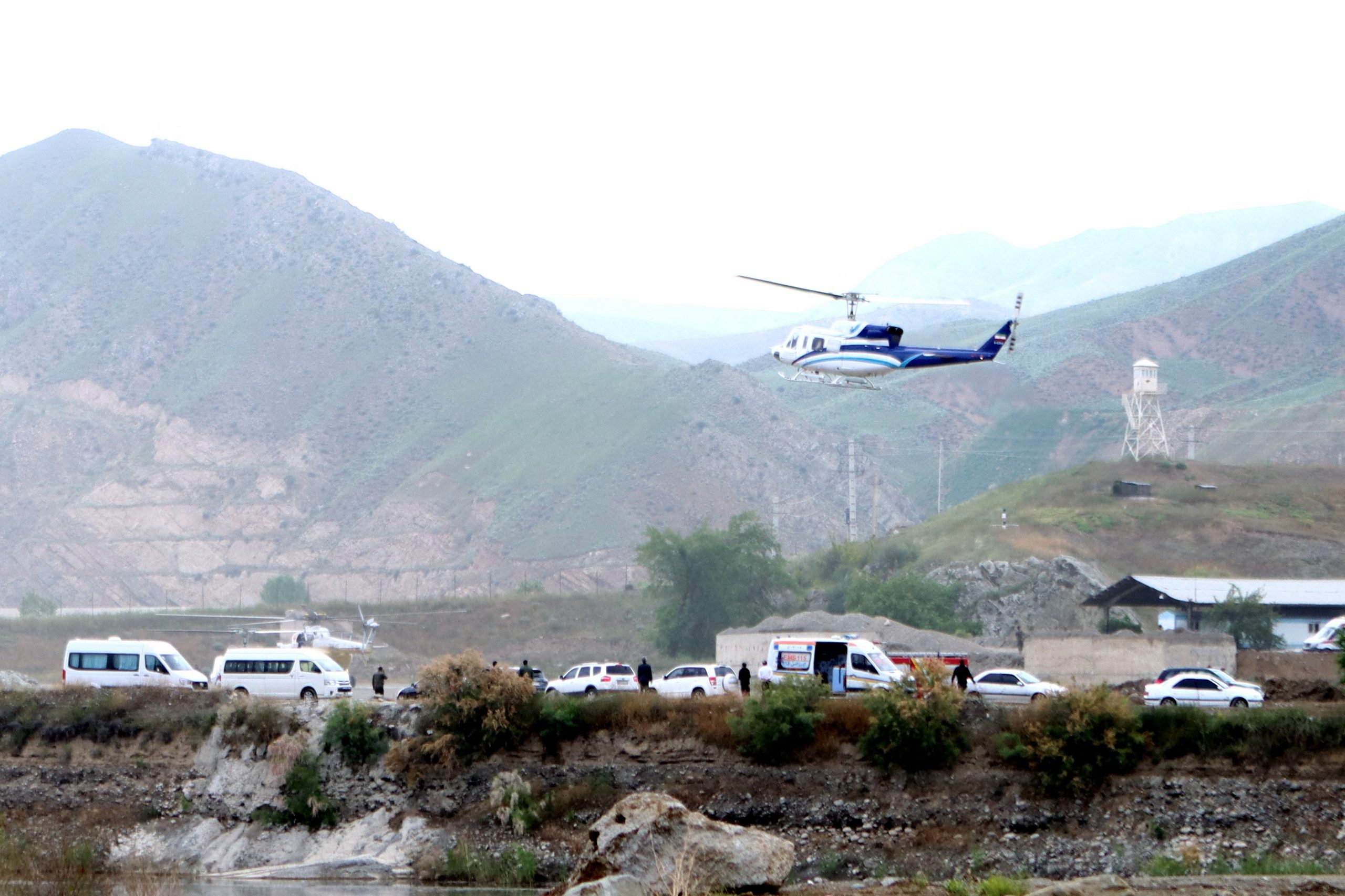Rescue teams haven’t been able to locate a helicopter carrying Iranian President Ebrahim Raisi that made a “difficult landing” in northwestern Iran, the country’s interior minister said Sunday, without providing any information on his condition.
Drones, dogs and search and rescue teams were being used to try to locate the helicopter as fog and bad weather made the work difficult, the interior minister, Ahmad Vahidi , said on Iranian state TV. Aboard the helicopter was also the foreign minister, Hossein Amir-Abdollahian , state TV said.
In Washington, a National Security Council spokesman said the U.S. is aware of the reports but had no immediate comment on the situation.
Rescue teams were sent to the vicinity of the incident, which occurred in the mountainous Arasbaran forest in the country’s far northwest, near Iran’s border with Azerbaijan, according to the Red Crescent Society.
Pir-Hossein Koulivand , head of the Iran Red Crescent, told state TV that 40 rapid-response teams from various provinces were searching on foot because the area is so mountainous. State TV showed images of the area covered in thick fog.
Even as day turned to evening, rescue teams still hadn’t reached the site of the incident. “The search has become harder given the heavy fog,” Iran’s health minister said on state TV. “We have prepared all facilities and possibilities, including surgeons…so that we can start treatment as soon as it is found.”
The president had been traveling to Tabriz, the largest city in Iran’s northwest, about 100 miles from where the helicopter appeared to have gone down. The incident took place after Raisi had inaugurated the opening of a dam with Azerbaijan’s leader, Ilham Aliyev , on the neighboring countries’ shared border.
The Red Crescent said it hadn’t confirmed the incident to be a crash.
Iranian state TV broadcast images of people praying for the president’s health.
A senior Hamas official released a statement of support for the president, saying: “Our hearts are with the brotherly Iranian people. We ask Almighty God to be kind to the Iranian president, the foreign minister and all those with them.”
For years, Iran has had to rely on old aircraft and equipment because of Western sanctions on the sale of planes and spare parts to the country.
A conservative cleric and for decades a close confidant of Supreme Leader Ali Khamenei , Raisi became Iran’s eighth president in August 2021, leading a significantly harder-line government than his predecessor, Hassan Rouhani . There has been speculation that he could be a contender to become the country’s Supreme Leader when Khamenei, who is 85, dies.
Iran’s relations with the West have soured under Raisi, who was elected with the lowest turnout in years, after a raft of other contenders were excluded. His election marked the consolidation of anti-Western hard-liners in the Islamic Republic.
Raisi has overseen the country’s worsening relationship with the West as well as a harsh crackdown on civil rights at home amid the fiercest protests in decades.
Under Raisi, ties with China and Russia have grown much closer through Tehran’s “Look East” strategy, including the supply of weapons to Russia for its war in Ukraine. Raisi has also helped steer Iran toward a more confrontational stance with Israel.
Raisi has enjoyed a close relationship with the Islamic Revolutionary Guard Corps, which for more than a decade has expanded Iran’s military footprint abroad, including by propping up militias near Israel’s borders.
On the nuclear front, the Biden administration had come close to reaching a deal to revive the 2015 nuclear agreement before Raisi’s election, but the new government put talks on hold for months and then returned to the negotiating table with a host of new demands.
In the end, talks collapsed in the summer of 2022, ending for now the possibility of broad Western sanctions relief for Tehran in exchange for tight but temporary restrictions on Iran’s nuclear work.
While Khamenei has the final word on decisions over nuclear policy, Iran’s nuclear work has advanced significantly since Raisi took office. Iran has now produced enough fissile material for around three nuclear weapons, experts say. Iran denies working on nuclear weapons, and U.S. officials say there is no current evidence that they are trying to build a weapon.
If Raisi were to have died or otherwise be incapacitated, “I don’t think this will have a major impact on Iran’s approach to the major issues,” including the nuclear issue and the war in Gaza, said Ali Vaez , Iran project director at conflict-resolution organization Crisis Group.
It would, however, deprive Iran’s Supreme Leader of a trusted lieutenant.
“Raisi would have been a good choice because he was a subservient president who had done the leadership’s bidding for decades,” Vaez said.
Azerbaijan’s state news agency said earlier on Sunday that the two leaders met at the border, near the Azerbaijani city of Jabrayil.
The state news agency, which also published photos of the two leaders shaking hands across their countries’ shared border, quoted Raisi and Aliyev exchanging veiled criticisms of the U.S. “Some may not like our meetings and our joint successes,” Raisi said.
The agency quoted Aliyev echoing that sentiment, saying: “The joint success of our people makes our friends happy, and those who don’t like it, I think it would be better if they minded their own business.”
Write to Laurence Norman at laurence.norman@wsj.com
Follow the update here.



